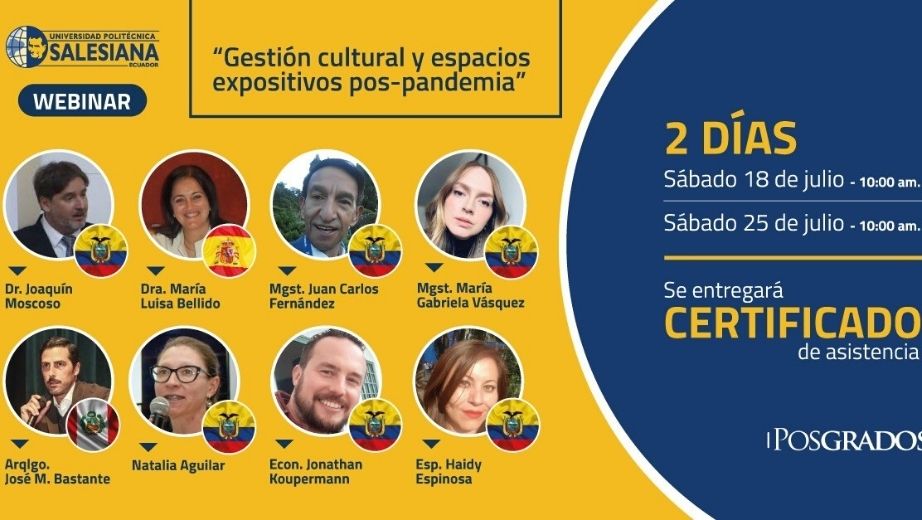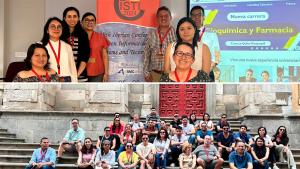Challenges and strategies to reactivate the cultural sector
Challenges and strategies to reactivate the cultural sector

The master's degree program in Cultural Management, here at Universidad Politecnica Salesiana (UPS), organized an event to talk about the crisis caused by Covid 19 on the cultural sector. Four experts in culture discussed the challenges that this sector is facing, as well as strategies to stimulate people to become more interested in culture.
The first part of the webinar was held on July 18th with over 800 participants; the second part will take place on July 25th from 10am to 12pm, there will be speakers from Ecuador and Peru.
UPS president Father Javier Herrán, highlighted that a few years ago culture was identified with old churches and museums, while management was related to banks and formal aspects. However, he stressed that the 21st century requires bringing these two realities together, to consider culture as a daily construction, which is achieved with the contribution of professors who are dedicated to analyzing social behaviors, dynamics and changes that strengthen culture as part of human identity.
Proposed actions
María Luisa Bellido, director of the Secretariat for Cultural Assets at the University of Granada in Spain, spoke about the importance of integrating virtuality into the work carried out by museums. She proposes the creation of virtual exhibitions, the use of social networks, organizing immersive virtual visits and above all strengthening the idea of an open museum that is not limited to a physical or geographical space, but includes a global audience.
Joaquín Moscoso, executive director of the National Institute of Cultural Heritage (INPC), spoke about the institutional action plan that the entity has implemented in the face of the crisis caused by the health emergency. The priority has been research, implementation and dissemination of cultural heritage to obtain resources and serve the most affected sectors. In addition, they have worked on protocols for the reopening of museums, archives and libraries, to gradually reactivate these sectors.
Regarding what museums show us today, María Gabriela Vásquez, director of the Museum of Modern Art in Cuenca, indicated that the contents that characterize museums have been maintained, what has changed is the way they are being shown. She stressed that it is necessary to work on a critical museography, to generate an information that invites to observe reality and takes advantage of hyperconnectivity to relate public, art and culture.
Juan Carlos Fernández, president of the International Council of Museums (ICOM) Ecuador, presented data from a survey carried out by ICOM globally in 107 countries, which determined that 40% of museums will no longer open. He also highlighted that all over the world they agree on the importance of maintaining the interest of visitors through narration of the collections, telling life experiences, radio broadcasts, online collections, virtual visits, webinars and more.
Blas Garzón, director of the master's degree in Cultural Management, invites you to participate in the last event this Saturday, July 25. To access all the information of the event and its conferences go to @PosgradosUPS





Follow us
Follow us